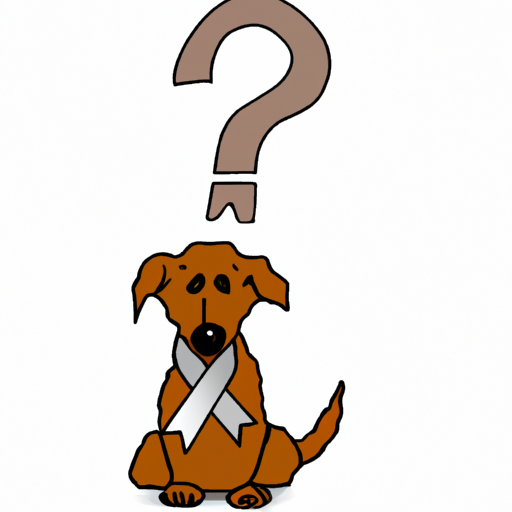Understanding Canine Cancer
Canine cancer is undeniably a topic that may fill your heart with dread, but it’s important to remember that knowledge is power. Much like in humans, cancer in dogs has many potential causes, ranging from genetics to environmental factors. If you are a dog-owner, it’s not uncommon to wonder why our furry friends seem to be diagnosed with cancer so often.
- Genetics: Certain dog breeds are more prone to specific types of cancer due to their genetic makeup.
- Age: Older dogs are more likely to develop cancer, just like in humans.
- Environmental Factors: Exposure to harmful substances, such as secondhand smoke or certain pesticides, can increase a dog’s risk of developing cancer.
Signs and Symptoms of Cancer in Dogs
It’s not always easy to tell if your dog has cancer. However, being aware of the common signs can help with early detection and treatment. Here are a few symptoms you should watch out for:
- Unexplained weight loss
- Difficulty eating or swallowing
- Swelling or lumps on the body
- Abnormal discharges
- Sores that don’t seem to heal
- Loss of appetite
- Bleeding or discharge from any body opening
The Role of Veterinary Care in Cancer Detection and Treatment
Regular veterinary check-ups are crucial for early cancer detection. Your vet can perform a variety of tests to diagnose cancer, including blood tests, biopsies, and imaging studies. If your dog is diagnosed with cancer, the treatment options will depend on the type and stage of the cancer, as well as your dog’s overall health.
| Treatment Method | Description |
|---|---|
| Surgery | Removal of the tumor and possibly surrounding tissue |
| Radiation Therapy | Use of radiation to kill cancer cells |
| Chemotherapy | Use of drugs to kill cancer cells |
| Immunotherapy | Boosting the dog’s own immune system to fight cancer |
The Role of Nutrition and Lifestyle in Cancer Prevention
While there’s no surefire way to prevent cancer in dogs, certain lifestyle changes can help reduce the risk. This includes feeding your dog a balanced diet, ensuring they get regular exercise, and minimizing their exposure to known carcinogens.
Emotional Support for Dogs With Cancer
A cancer diagnosis can be just as tough on a dog as it is on their owner. It’s vital to provide your pet with plenty of love, comfort, and emotional support during this challenging time. Try to maintain their routine as much as possible, and don’t forget to spoil them with their favorite treats and toys.
Frequently Asked Questions
Q: What breeds are more prone to cancer?
A: Certain breeds like Golden Retrievers, Boxers, and Bernese Mountain dogs are more prone to cancer.
Q: Can a dog live with cancer?
A: Yes, many dogs with cancer live quality lives. The prognosis depends on the type and stage of cancer and the treatment provided.
Q: Can dogs undergo chemotherapy for cancer treatment?
A: Yes, chemotherapy is a common treatment for various types of cancer in dogs.
Q: How often should I take my dog for a vet check-up?
A: It’s recommended to take your dog for a check-up at least once a year for younger dogs and twice a year for older ones.
Q: Is cancer in dogs painful?
A: Some types of cancer can cause pain, but your vet can prescribe pain medication to help manage any discomfort.



